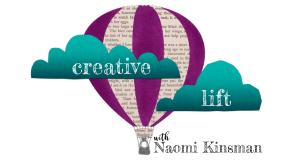When you ask a friend or advisor for feedback, you’re both up against a number of challenges.
Your advisor:
- Doesn’t know all the ideas you’ve tried and tossed out
- Hasn’t researched, thought, and tinkered with this question or creation for as many hours as you have
- (Hopefully) Wants to give helpful feedback to move you forward without discouraging you
You:
- Have invested significant time and want that time to add up to successful results
- Have made the project as strong as possible, given your current perspective and skill set
- (Hopefully) Are passionate about your project, and therefore, you have skin in the game
Given the challenges, does it make sense for you to seek feedback at all?
You and your advisor are knowingly putting yourselves into a situation filled with the potential for misunderstanding and conflict. Why risk it?
Because you:
- Have invested significant time and need to understand how others might react to your creation once you release it into the world
- Have blind spots because of your current perspective and skill set, which others can see more clearly than you can
- Care about your project’s success, and therefore, are willing to tackle your ego, engage with honest feedback, and exercise your resilience through the revision process
Whether you’re writing a novel, developing an app, or designing a lesson plan, your creative process will yield stronger results if you seek feedback at key points along the way. Often when we seek feedback, we want to give our advisors room. So, we ask a wide-open question along the lines of, “What do you think?” However, when we’re on the receiving end of such a question, we immediately see the problem. The most likely answer to “What do you think?” in an emotionally fraught situation is, “Ummm…”
So, what might you ask instead?
Give your advisor an opportunity to read the section, play with the app, or review your lesson plan. Then, give these questions a try:
1. What do you know?
Answers to this question confirm how successfully you’ve communicated. Will your reader or user be able to navigate without you sitting beside him and explaining? For a lesson plan, try adapting this question to: What will a student know after this lesson? For other creative situations, adaptation might also be required. One strong substitute for this question in visual and musical arts can be, “What do you feel?”
2. What do you think you know?
Answers to this question provide insight about what your work might infer. Consider whether these nuances are desirable––and how you can play them up or remove them. Make sure that any information that you mean to make clear doesn’t show up in this more fuzzy category. Watch for opportunities, here, too. Sometimes an answer to this question will reveal a thematic layer or new possibility that opens up new depth in your work.
3. What do you want to know?
Answers to this question reveal the questions your work evokes. Sometimes these questions reveal aspects of the project that have not been fully realized. Other times, these questions confirm the desired impact of your work, or provide you with ideas for follow-up projects.
Of course, some feedback sessions call for a different set of questions. However, in many situations, this set of questions structures a productive conversation that allows for honest feedback. Your advisor will confidently be able to help you, and you will be able to absorb the feedback without becoming defensive.
Why seek feedback?
The value in seeking feedback from an advisor isn’t in having her fix the problems for you. In fact, given the time invested, even if your advisor is more experienced than you in general, YOU are the expert on your specific project. What you want from your advisor is his outside perspective, which is often helpfully informed. With that perspective, your advisor can help you identify problems. Then, you can set about resolving the problems through brainstorming, research, and iteration.
What project are you working on that would benefit from outside perspective? Who might you ask to review your work and answer these three questions? Try it out, offer your feedback in exchange, and see how your work develops.


